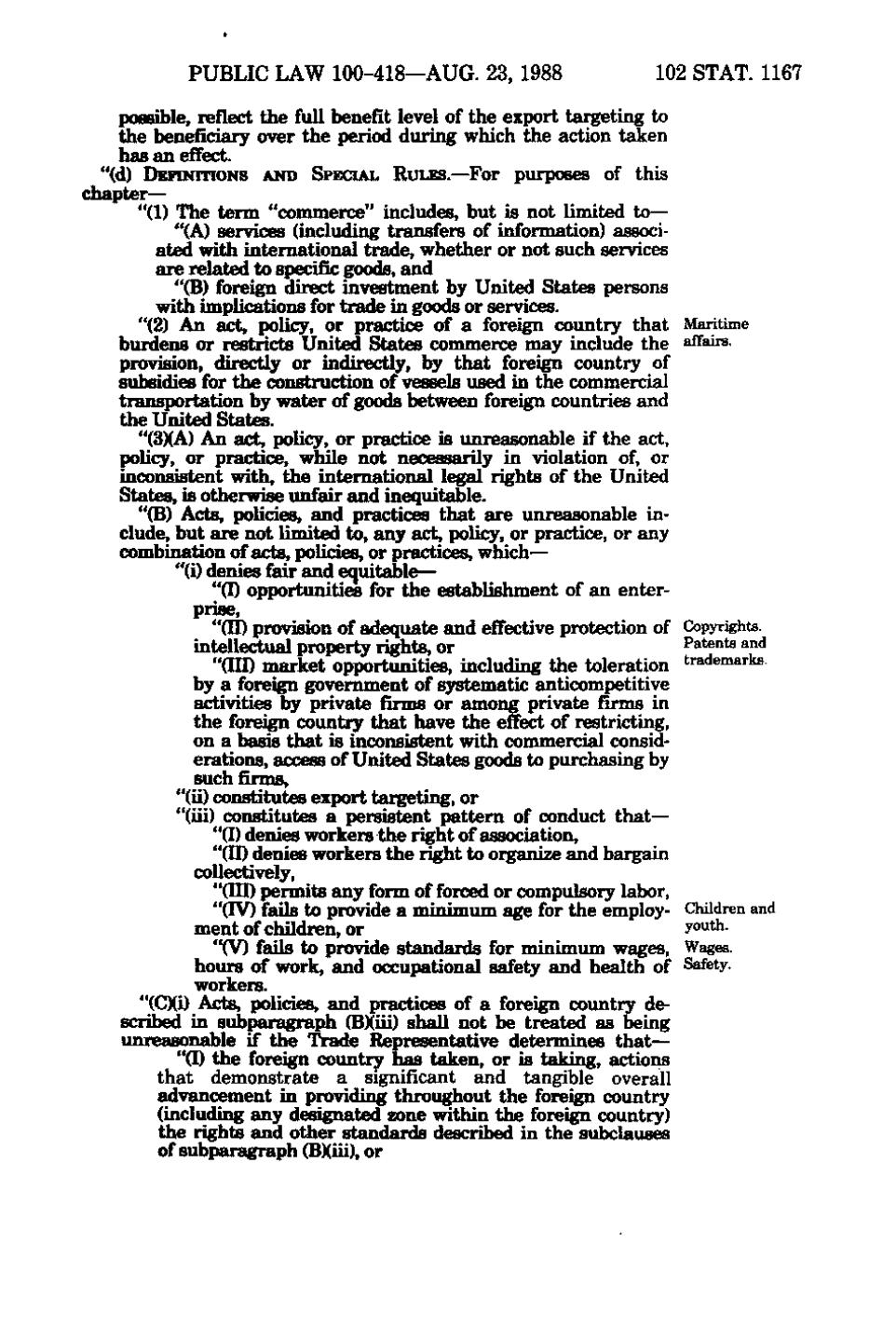PUBLIC LAW 100-418—AUG. 23, 1988
102 STAT. 1167
possible, reflect the full benefit level of the export targeting to the beneficiary over the period during which the action taken has an effect. "(d) DEFINITIONS AND SPECIAL RULES.—For purposes of this chapter— "(1) The term "commerce" includes, but is not limited to— "(A) services (including transfers of information) associated with international trade, whether or not such services are related to specific goods, and "(B) foreign direct investment by United States persons with implications for trade in goods or services. "(2) An act, policy, or practice of a foreign country that burdens or restricts United States commerce may include the provision, directly or indirectly, by that foreign country of subsidies for the construction of vessels used in the commercial transportation by water of goods between foreign countries and the United States. "(3)(A) An act, policy, or practice is unreasonable if the act, policy, or practice, while not necessarily in violation of, or inconsistent with, the international l ^ a l rights of the United States, is otherwise unfair and inequitable. "(B) Acts, policies, and practices that are unreasonable include, but are not limited to, any act, policy, or practice, or any combination of acts, policies, or practices, which— "(i) denies fair and equitable— "(I) opportunities for the establishment of an enterprise, "(II) provision of adequate and effective protection of intellectual property rights, or "(HI) market opportunities, including the toleration by a foreign government of systematic anticompetitive activities by private firms or among private firms in the foreign country that have the effect of restricting, on a basis that is inconsistent with commercial considerations, access of United States goods to purchasing by such firms, "(ii) constitutes export targeting, or "(iii) constitutes a persistent pattern of conduct that— "(I) denies workers the right of association, "(n) denies workers the right to organize and bargain collectively, "(HI) permits any form of forced or compulsory labor, "(IV) fails to provide a minimum age for the employment of children, or "(V) fails to provide standards for minimum wages, hours of work, and occupational safety and health of workers. "(C)(i) Acts, policies, and practices of a foreign country described in subparagraph (B)(iii) shall not be treated as being unreasonable if the Trade Representative determines that— "(I) the foreign country has taken, or is taking, actions that demonstrate a significant and tangible overall advancement in providing throughout the foreign country (including any designated zone within the foreign country) the rights and other standards described in the subclauses of subparagraph (B)(iii), or
Maritime affairs.
Copjrrights. Patents and trademarks.
Children and youth. Wages. Safety.
�
